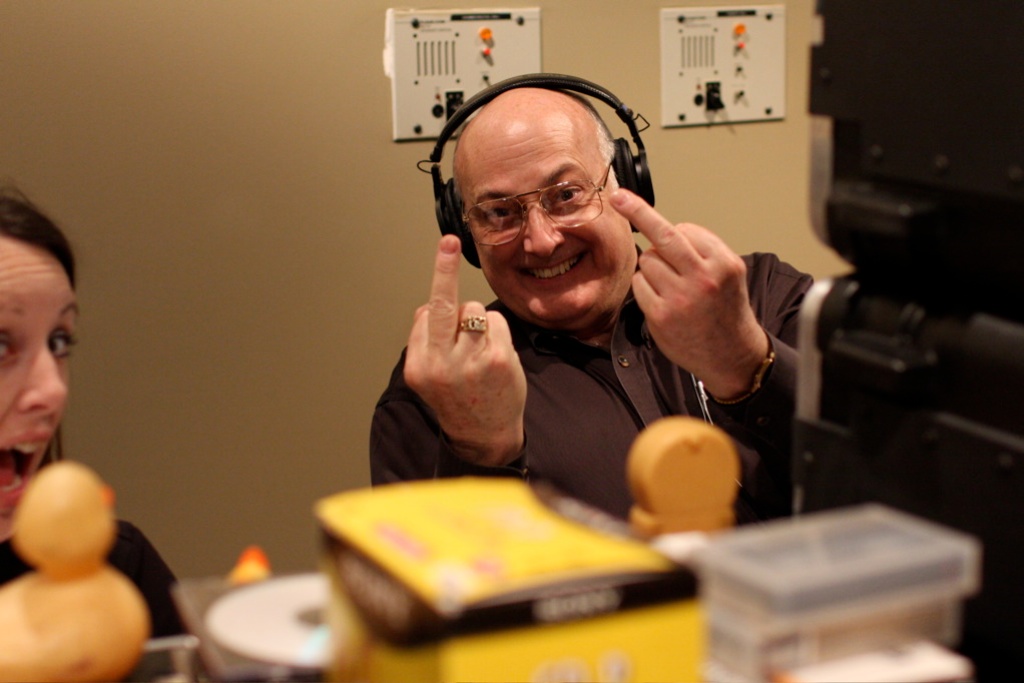July 9, 2009
Kingfishers on Naxos CD
The University of Georgia Wind Ensemble, conducted by John Lynch, just released a fantastic CD on the Naxos label. The whole disc (called “Millennium Canons – Looking Forward, Looking Back”) is worth hearing, and the sound quality is stunning. The CD includes the first internationally-available recording of “Kingfishers Catch Fire,” and it’s also the first recording of the piece with my “stamp ‘o’ approval.” I was at the recording session — I wrote about it on the blog — and I sincerely appreciated that Dr. Lynch welcomed my input during the session. I love what John did with the piece.
Why isn’t this always the case? If an ensemble is going to record a piece by a living composer, shouldn’t they want the composer there during the recording session to help produce the recording and ensure that the final product is the definitive representation of the piece? I think part of it comes down to budget, but I suspect it’s also because not every conductor wants the composer butting in after every take to offer endless nitpicking tweaks. I was fortunate to be part of UGA’s “Kingfishers Catch Fire” session, as well as the University of Kansas’s sessions for my Soprano Sax Concerto (also on the Naxos label), and most recently, Arizona State’s recording session for their recording of my Soprano Sax Concerto (to be released next spring — and boy howdy, that one is going to be incredible).
There’s a Naxos Podcast about the CD, with a good interview with John Lynch. It’s worth a listen. In addition to “Kingfishers,” the CD includes “Millennium Canons” by Kevin Putz; “My Hands are a City” by friend-of-the-blog, Jonathan Newman; “Lost Gulch Lookout” by the newest member of the University of Michigan’s composition faculty, Kristin Kuster; Holst’s “Hammersmith;” and “Awayday” by British composer Adam Gorb.
If you do buy the physical CD (available on Amazon), check out the photo credit for the CD cover. That’s right: yours truly! (This is a shot of Lost Gulch Lookout in Colorado.)
The entire CD is available on iTunes (and also on Amazon as an MP3 download), or you can purchase the two movements of Kingfishers as individual tracks. Both movements are really spectacular, but the first movement, in particular, is the best I’ve ever heard, thanks largely to the clarity of the recording. I’d kind of forgotten about a lot of those little color changes that you can really only hear on this recording. (Just listen to that bassoon solo in the first movement! Check out the clarity of the low winds in the second movement! Seriously — the contrabassoon is reason enough to buy the second movement. And I haven’t even touched on the insanely sweet bass trombone playing in the big chorale towards the end of the second movement…) Thank you engineer Bruce Leek, who is, to my ear, the best band recording engineer out there.
Comments
Andy Zweibel says
John,
I just came across your blog today--how convenient that you were posting this just as I was subscribing to you!
I'm a student at the University of Miami, and had the opportunity to perform Strange Humors in the Fall of 2007, and Kingfishers under Lauren Wright last spring. What a wonderful piece! I am sure Dr. Lynch and the UGA Wind Ensemble performed it beautifully and I look forward to purchasing the album! Congratulations on having it published!
Looking forward to reading more from you,
-Andy Zweibel
Add comment